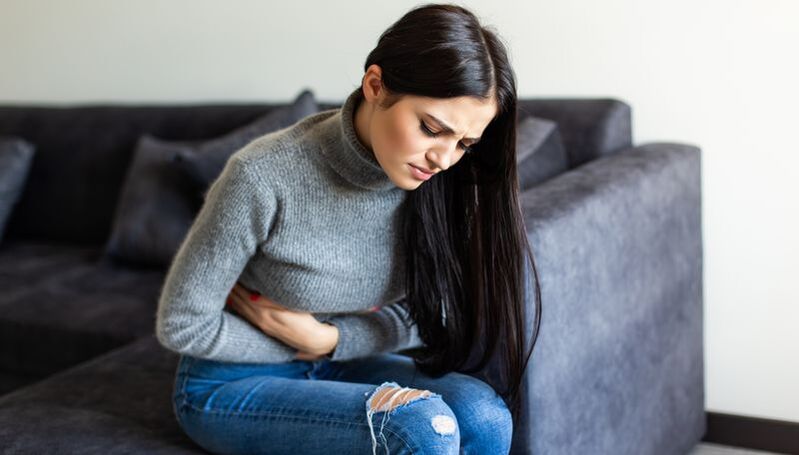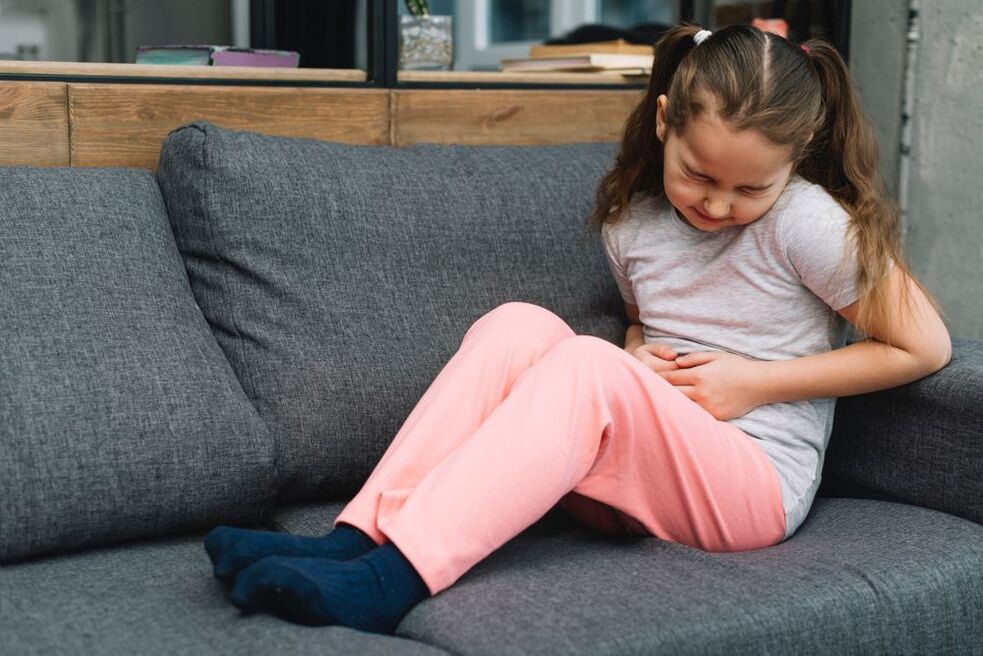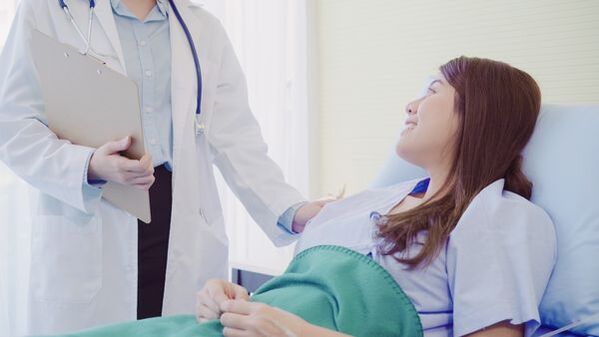
This is a nasty disease that women are very susceptible to. Cystitis appears due to inflammation of the mucous membrane of the bladder, which occurs against the background of a bacterial infection.
A urinary disease can become chronic if left untreated and lead to changes in bladder tissue, provoking the development of serious diseases.
Causes of cystitis
Causes of cystitis can also be decreased immunity in general, chronic stress, initiation of sexual activity, urethral stricture, hypothermia, stagnation of urine in the bladder (habit of fasting)to the end), unbalanced nutrition, hormonal disorders. , pregnancy, childbirth, acts on the organs of the urinary system.
Another reason is medication. Causes of cystitis can also be decreased immunity in general, chronic stress, initiation of sexual activity, urethral stricture, hypothermia, stagnation of urine in the bladder (habit of fasting)to the end), unbalanced nutrition, hormonal disorders. , pregnancy, childbirth, acts on the organs of the urinary system.
Cystitis can also cause the body to react to certain allergens. In women, cystitis is most common. It is due to the physiological characteristics of the female genital structure. The urethra is close to the entrance to the vagina and anus. Therefore, it is very important to constantly monitor the quality of intimate hygiene.
Symptoms of cystitis
- Frequent urge to urinate - during urination may appear pain and burning in the urethra, as well as a feeling of incomplete urination.
- pain in the lower abdomen - feeling of bladder pressure. And the sign of cystitis is also itching and burning in the perineum. In some cases, patients do not value the sensations of pain and discomfort if they are not so pronounced. This can lead to chronic illness and complications.
- The appearance in the urine of pathological impurities (mucus, blood, pus) - the color of urine can be from pale pink to brick. The presence of impurities indicates the presence of the virus in the human body. With the development of cystitis, a sharp pain in the urethra may appear.
What are the symptoms of cystitis during pregnancy?
During pregnancy, the protective functions of the immune system in women decrease. Therefore, when entering the body, the pathological organism causes the inflammatory process to take place much faster.
The development of cystitis is facilitated by the peculiarities of female physiology. The shorter and wider shape of the urethra, closer to the vagina and intestines, contributes to the rapid transmission of infections from nearby organs.
With this disease, the walls of the bladder become inflamed, which leads to a violation of its functions. Symptoms of cystitis are quite specific - it is difficult to confuse them with other pathologies. The woman may experience frequent, painful urination, bloody urine, and fever.
First of all, a woman should see a urologist. The doctor will prescribe the necessary tests and examinations and recommend that you undergo a further consultation with a gynecologist. This allows you to exclude the presence of an infection of the genital area, which can lead to bacterial vaginosis, cervicitis, thrush.
How to treat cystitis in pregnant women? Diet, immunity and hormonal status are adjusted, blood circulation is improved. Then it is necessary to start the fight against pathogens (E. coli, Candida fungi, STIs, viruses), restore the damaged structure of the bladder.
Cystitis in children

Due to the basic anatomical difference between the sexes, cystitis occurs 4-10 times more often in girls than in children of the opposite sex.
Pathological signs in children are very diverse. Pain when urinating, in the urethral canal, lower abdomen, or side. In addition, the frequency of urination may increase, as well as urinary incontinence and leakage that were not previously observed.
Children have erratic expressions, increasing when urinating and defecating. At the same time, the appetite is disturbed, there is anxiety if you have to sit on the potty because of fear of pain, burning, and stinging. Intoxication of the body occurs, which is manifested by increased body temperature, chills.
Clinical manifestations vary with the age of the child. In young children, general symptoms predominate. In addition, children at a young age are not always able to point out what worries them. In older children, signs of intoxication are no longer present, here urinary disorders and pain syndrome appear.
Types of cystitis
There are several classifications of pathology: by process, type of inflammation, etiology. We will present in more detail the classification according to the course of the disease.
- Acute cystitisappears a few hours after exposure to the body of a harmful element. It has pronounced symptoms of the inflammatory process with a tendency to progress. If acute cystitis is left untreated or the wrong therapy is used, there is a high chance that it will develop into a chronic one.
- Subacute cystitishave a blurred clinical picture. Symptoms are mild or absent. It may be accompanied by pain and dysuria, while the body's symptoms of intoxication (fever, aches, chills) are not observed.
- Chronic cystitisoccurs as a result of untreated acute cystitis. It is characterized by a slow process, the symptoms are not manifested, and sometimes it is completely asymptomatic. That is, the inflammatory trigger in the bladder persists without going away on its own, but at some point will flare up violently with all the subsequent consequences: frequent and painful urination, heatburning, itching, cloudy urine, discomfort, etc. v.
Diagnosis of disease
A urologist deals with the diagnosis and treatment of cystitis. Only a specialist doctor knows how to definitively treat this disease to avoid chronic inflammation and not cause harm to health.
You can visit the nearest clinic for examination and diagnosis. However, this takes time, as you need to wait 2-3 weeks for a doctor's appointment. But in the case of acute or subacute cystitis, time is the most valuable resource. Therefore, the best option is to contact a specialist medical facility. Here you can register for an examination and see a specialist doctor in the near future.
The urologist will determine your general health, ask about past illnesses, frequency of urination, and medications taken. Next, the specialist examines the abdomen and kidney area, lower back.
Cystitis in men - look through and feel the genitals. Prostate-rectal examination.
Cystitis in women - assessment of the state of the mucous membranes, female genitalia, exploration of the bladder and ureters.
The following tests may be needed to make a diagnosis:
- General urinalysis
- Urinalysis according to Nechiporenko
- check for bacteria in urine
- cystoscopy
- Ultrasound of the bladder and abdominal organs, including the kidneys
How is cystitis treated?

After a series of appointments with a urologist and a diagnosis, the specialist will prescribe an individualized treatment program, including medications for cystitis. It depends on the disease itself and the extent of the course.
In the treatment of cystitis, the following principles must be observed:
- bed or half-bed rest during acute symptoms of illness.
- medical food. Diet for people with cystitis should be lacto-vegetarian, ie the patient's daily diet should be mainly dairy products, vegetables and fruits. Fried, spicy, salty and spicy foods, as well as alcoholic beverages are strictly prohibited.
- antibiotic therapy. The inflammatory process can be treated with antibacterial and anti-inflammatory drugs. Antibiotics for cystitis are prescribed first with a broad spectrum of action, and after receiving the results of a urine culture and antibiogram. An antimicrobial drug is used, to which the causative agent of cystitis is sensitive.
- pain therapy. With severe pain in the bladder, the patient is prescribed painkillers and antispasmodics.
- physiotherapeutic treatment (electrophoresis, phonophoresis, inductance, UHF and others).
We advise you not to self-medicate in any case, but to consult a urologist in such a delicate matter. Make an appointment with a urologist and make sure your problems stay outside the walls of the clinic.


























